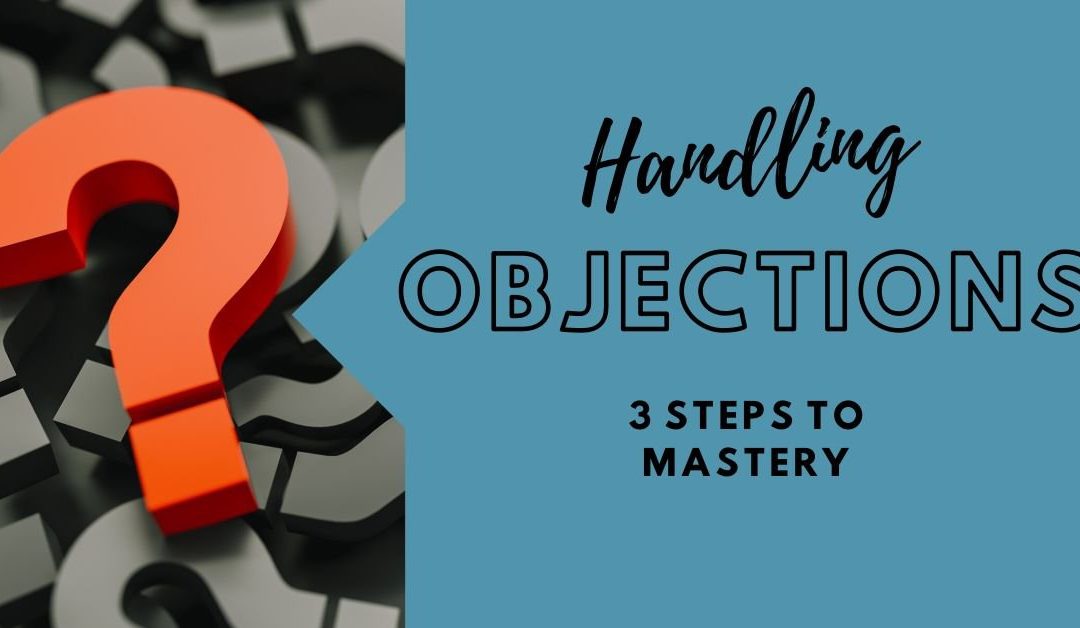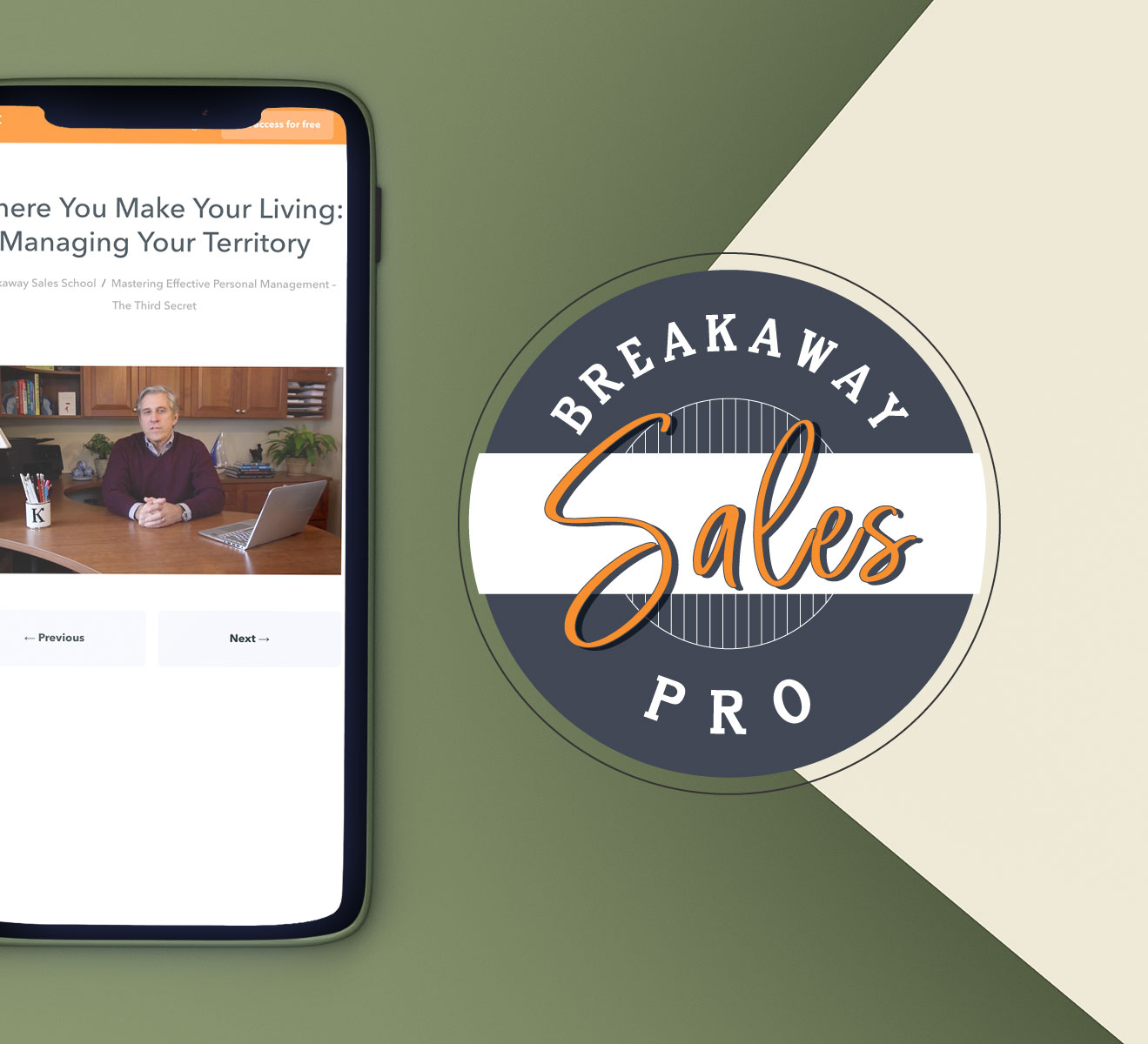Remembering the four secrets of Breakaway Sales performance, we can start to connect to the important tactical elements of making the sale:
- A structured sales cycle lets you open the conversation, ask the right questions, and present your offerings.
- Understanding buying behaviors helps you connect to the psychology of selling in what I call the front wheel and back wheel of the sales bicycle.
- Effective personal management is being the CEO of your territory and managing your time to accommodate sales goals for your territory.
- Mental toughness empowers you to handle the challenges and difficult days of any high performance sales pro.
All 4 secrets come into play when we’re handling objections.
Handling Objections Step 1: Eliminate Friction
The first thing to think about in a sales situation is that often you’ve invaded your prospect’s time. By nature of making the sales call, which is on your agenda, you’re trying to move your prospect into seeing the mutual benefit of your conversation. Sometimes this results in the prospect blowing you off or wanting to reschedule. The Breakaway sales pro manages this without emotion and with empathy, realizing that “being sold to” isn’t what anybody’s looking for. One way I like to manage this is by eliminating it altogether. A simple statement like, “Hey, thanks for taking my call, I know your time is valuable and I promise to get to the point,” immediately eliminates this divide, alerts your prospect that you recognize their position and your reality, and puts common sense at the forefront of your brand new relationship. Ask permission to continue if appropriate, or request a better time to get on their schedule. The reason small gestures like this make an impact is because too many sales reps don’t do them. You can’t always just get on a call and demand attention or time you haven’t earned or asked for.
Handling Objections Step 2: Turning No into Not Yet
Understand that most objections come from a lack of motivation from your prospect. The lack of motivation is because they’re unclear on the value proposition, skeptical it’s what they need or want, or unsure of the way ahead. Your response has to be one of trust building. There are four key reasons people don’t buy:
- No trust. This is earned through interpersonal skills – the empathy I described above is a great way to start earning trust. If a prospect doesn’t consider you trustworthy, nothing else you do or say is going to resonate.
- No need. Even if they trust you, prospects have to see the value in what you’re offering. This is where territory management comes in – you should already approach a prospect with an idea of how you and the services or products you’re selling can help.
- No help. A prospect that trusts you and sees the value of what you’re pitching, but you need to help your prospect envision success on the other side of the sale. Maybe that’s how to talk to other stakeholders, how this thing integrates with existing systems, or other ways that moving on from the status quo helps the prospect in large and small ways.
- No hurry. This one can drive even the best sales pro’s nuts – sometimes everything’s moving in the right direction, all the signs are there, and the progress on the sale just stops. There’s always a reason for this. And if you’ve cultivated trust, demonstrated need, and provided help I think it’s appropriate to ask. Get on the phone, ask questions, and find out what adjustments need to be made to prioritize this – or if it’s time to move on.
Any one of these points can be the root of an objection, or the area that if explored more can help you overcome the objection.
Handling Objections Step 3: Stay Involved
One reason why there are so many resources out there on handling objections is because it’s such a rampant issue. What makes it an issue isn’t that objections come up – it’s that most sales pros cower in fear the minute they do and let the sale get stale. You have to get involved and energized in each phase of no trust, no need, no help, no hurry. Critique your own performance, look back at failed sales and analyze why and put lessons, processes, and workflows in place for the future opportunities.
Objections, when handled correctly, give you more insight into the opportunities your prospect and your own sales development have because in asking questions and earning your place in the conversation you uncover issues – the prospects, those of your value proposition, and even your own. Overcome fear of objections and lean into learning from them. Not only will you close more deals, you’ll grow more confident and learn to anticipate objections quickly and easily.




